Mark Bowe, a craftsman, businessman, and host of the popular reality television show “Barnwood Builders,” reconstructed and restored more than 500 historic pioneer-era structures, which were mostly forgotten and abandoned over the years. He and his team were passionate about giving new life to these old structures, by converting them into modern homes, while maintaining most of their original design and style. His intense drive in repurposing the ingenuity of the American pioneers led him to build a DIY empire focused on hand-hewn logs, which fascinated viewers up to this day.
Get to know Mark Bowe’s early years and education
The former coal miner was described as a ‘brilliant shapeshifter,’ who was forever adapting to survive and triumph over the challenges of the modern world, while intensely aware of the need to do something to preserve the past. It was for this contribution to West Virginia at large that in 2022, the Glasgow town Mayor Don Fannin along with the Kanawha County Commission dedicated a sign in his honor, proudly announcing that it was his childhood home.
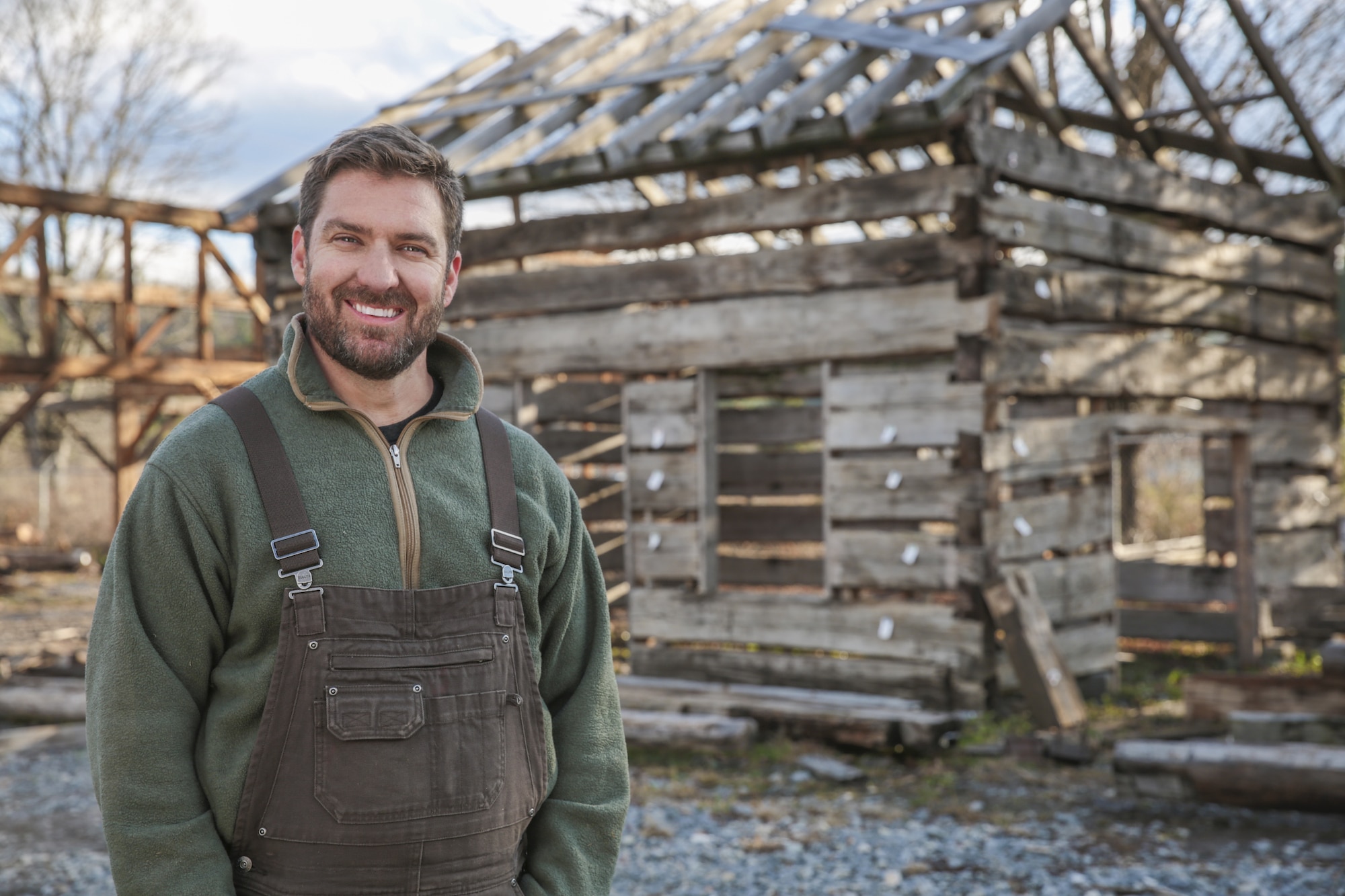
Early years
Mark Bowe was born on 5 March 1970, in a small blue-collar town in Kanawha River in Glasglow, Western Virginia. Most of his relatives were also born and raised there, and belonged in a community where they enjoyed a simple life. He used to be the family errand boy, as his mother gave him the responsibility of collecting all the mails for their relatives from the post office, and delivering them to everyone. The young Mark wasn’t good at his job, as they often received calls that a letter or utility bill for an aunt or a cousin was dropped on the street. He also worked alongside his father doing multiple jobs growing up, and that led him to learn early on the value of hard work, and from his mistakes.
Education
It was in Dupont High School where Mark earned his high school diploma. He was then the first member of his family who went to college, and they were all quite proud that in 1988, he graduated with a bachelor’s degree in Business Administration from West Virginia University (WVU), and went on to earn a Master’s degree in Safety Management at the WVU College of Business. These undertakings were only possible because he earned money from working as a coal miner in Boone County – each time he saved $10,000, he would leave the job to go back to school, and then when he ran out of money, he would retuen to work again. This cycle continued until he finished his bachelor’s and master’s degrees.
Mark Bowe’s entrepreneurial success
In over 30 years, Mark Bowe successfully navigated the difficult path of creating a construction company in West Virginia with a certain specialty. He reclaimed, repurposed, and restored antique wood for others to build across the U.S.
From a coal miner to a craftsman/builder
After finishing his master’s degree, Mark went back to working for a coal mining company, and became a mine safety technician. Sometime in 1995, an old friend of his asked for help to tear down an old barnyard, and it was from that experience that the entrepreneurial spirit in him stirred. He founded a building company called Antique Cabins and Barn in West Virginia, tearing down old cabins and barnyards as well as repurposing the materials. At that time, Mark went looking for old log cabins to restore in Northeast Kentucky, and met one of the locals, Johnny Jett. Mark introduced himself and said, ‘I’m thinking about getting into the log cabin business,’ to which Johnny funnily replied, ‘I’m thinking about getting out of it.’ It was the start of a beautiful and successful relationship that lasted for more than two decades.
What? This is a perfectly reasonable dessert choice. #markbowe #barnwoodbuilders #barnwoodliving #barnwood #pickles #dessert #icedpickles #roundtoptx #roundtopantiqueshow pic.twitter.com/0p5xniaRhZ
— Mark Bowe (@MarkBowe) October 5, 2018
The first attempt at doing a reality TV show
Mark was slowly getting his name out there in his chosen building niche when an offer to do a reality TV show came knocking at his door. They did a pilot in 2004, and there were a lot of major networks looking at them, but one thing they asked for was that they had to fight to add a little more drama to it. This was the trend in the reality-TV genre back then, which was strongly inspired by the father and son’s explosive arguments in the automotive-related hit series, “American Chopper.” However, Mark said, ‘The thing is, we don’t fight. We actually enjoy working with one another.’ So, the project was shelved, as no one was interested in them doing things naturally, and Mark felt that maybe TV wasn’t really for them.
Mark dabbled into the insurance business too
Back in 2008, when the housing market tanked, no one was buying what they were building and he didn’t have any choice but to ‘pivot.’ It had been his favorite word and in a business context, it meant changing the way things were being done. Mark kept some of his guys and entered the insurance business, while he waited for the housing economy to become strong again. He never thought he would be involved with it but with the housing market gone, he adapted. He looked around him and his choices were limited to such as doing taxes, building caskets, or selling insurance because all of those were recession-proofed. That was the reality back then, so he started an insurance agency from scratch, and stayed afloat when everything around him seemed to be going down.
Expanded the business with Barnwood Living
It was long years of hard work that Mark put into his business. In 2016, he expanded the business into a lifestyle brand called Barnwood Living, and offered other services and merchandise. There were many items available from their online shop including a clothing line, crew’s gear, home goods, Johnny Jett art, and Mark’s favorite items. He became bolder and took on multiple projects as they helped people who wanted to preserve something of their history. He and his team built homes or facilities using materials that were rescued from centuries-old structures. They retained the integrity and style from the old days, and gave it a modern twist to make it more adaptable to the 21st century.
Mark and his reality TV, “Barnwood Builders”
After successfully taking down and rebuilding hundreds of pioneer-era structures in West Virginia and other parts of the US, Mark was given another chance to enter the world of reality TV.
How did “Barnwood Builders” start?
Mark shared that it took them 10 years before a producer came to them with an offer to do a reality TV showm without requiring them to be other than who they really were. They started filming with a production company called Silent Crow Arts for DIY Network. As promised by the executive producer, the production crew just followed them around on the projects that they were doing at that time. Mark said that aside from a little bit more scheduling and planning, the narrative was as real as it gets.
TV premiere, access, and popularity
After filming the first season, “Barnwood Builders” made its TV debut on 1 November 2013 and was aired on DIY Network, which was later re-branded as Magnolia Network in 2022. It developed a fan base, as viewers loved the narrative of the show and how it was presented on TV. They appreciate the fact that the series didn’t include scripted dramatic scenes among crew members or with clients, which every single reality TV show followed; Barnwood Builders broke off from that mold.
Initially, Mark and his team didn’t anticipate that it was going to be a hit series but what they offered was unique. They found success not only with the American audience but with the international market as well. The show was supposed to air its 15th season last November 2022 but due to some technical difficulties, it started airing in March 2023. The show was accessible not only via the cable channel but also by streaming via Discovery Plus.
Mark Bowe’s secrets to achieving success
Not everyone who dreamed of becoming a successful entrepreneur, especially from a small town, ended up making huge money, a top reality TV show, and a thriving brand. Here are some of Mark’s secrets or learnings over the years that he had been doing business:
https://www.facebook.com/BarnwoodBuilders/posts/pfbid034RSvY5Xzu9qdCmdQUVVJ1YphpwgDkS1qSnF5ikj6i87HHXfaSvbqANfkpfQ6DTC5l
Develop a strong work ethic
When he started his business, all that he had on his resume was his work experience related to coal mining. He attributed everything that he achieved with his team whether it was his construction company or reality TV show to the kind of work ethic that was fostered by his former mining crew. A group of 10 to 12 men would go deep underground with the same purpose. The bottom line was to keep each other highly motivated to work together as a team regardless of religious and political beliefs to achieve their task quickly without anyone getting hurt.
His business model for Barnwood Living
Barnwood Living wasn’t a business plan that Mark worked on when he was in college, but when the idea came to him, he made sure to study it well and explore every possibility that would earn them a profit. He said that there were two different aspects of his business. One was reclaiming and restoring 200-year-old buildings and the other one was developing a lifestyle brand. The quality of services that his company offered to its clients was promoted through the reality TV show, “Barnwood Builders,” and it gave them brand recognition.
His favorite catchphrase: ‘Work hard, be kind, and take pride.’
The values that he and his crew lived on in his company were ‘Work hard, be kind, and take pride.’ Mark believed that if anyone did those three things no matter where it would be applied such as life, relationships, or work, they would achieve some degree of success. Working long hours consistently would mean a high productivity rate. He also said, ‘Connecting with others and building meaningful relationships are the bedrock of any successful endeavor.’ It also didn’t mean anything if people didn’t take pride in what they did and where they came from. He considered himself a ‘hillbilly’ and he took it as a positive description as he came from a rural area and that he lived a simple life.
A little bit of raw grit and the ability to adapt
There was a time while producing the TV show during the first four seasons, Mark was also managing two businesses. It took a lot from him but he had this unyielding courage to do what seemed to be impossible for others. He learned how to leave an idea or a business that was no longer working. The ability to pivot from it and change things would mean being open to exploring other avenues. Mark parted ways with the insurance agency when it was no longer in line with his business vision. The decision wasn’t that hard to make since he didn’t react well when given an ultimatum such as ‘Do Hollywood or sell insurance.’
Dealing with clients and contracts
Whenever Mark bought a structure, he made sure that he did it without beating down the owner. He confessed that he wasn’t a good negotiator because he wanted the previous owners to get as much as they could from the sale. When it came to rebuilding and reselling, he said that it helped that he worked with many skilled professionals. Doing what was agreed upon in the contract and owning a mistake if ever a problem came up on his side gave him so many repeat projects. In essence, what was most important was nurturing a relationship with everyone associated with a project. Word travels fast in the industry and his reputation is his calling card.
Taking good care of employees
A good leader should not only be able to ‘walk the talk’ but also be empathetic. Putting themselves in someone else’s position would be the best way to gauge why certain people were acting that way. When Mark was asked if he could think of his favorite project over the years of reclaiming and rebuilding structures, he couldn’t think of one but said he remembered the experience he had in doing a project in Colorado and Montana. He said that everyone was having a great time laughing at trivial things such as people there were fencing animals out of their property whereas, in West Virginia, they were worried about keeping them inside. One of his priorities these days was to ensure that those who were with him for such a long time would have a great retirement when it was time for them to stop working and for those younger ones to be happily employed for a long time.
Mark’s future plans for his business
Being with Magnolia Network was a scary thing but also exciting for the growth and the kind of exposure that it brought to his business. DIY Network was seen in about 60 million households, but Magnolia brought half a billion viewers. With the different platforms available, it placed so much pressure on him in thinking of ways how to move the company forward. Another priority for him was how to keep the image of West Virginia positive throughout the whole thing. It was important for him to never be forever branded as a redneck and be involved in petty fights as there was enough drama already with equipment breaking down and changes in the weather, and so the last thing they needed was conflict.
The biggest challenge and their competitive edge
Mark pointed out that one of the biggest challenges Barnwood Living had to face these days was that in his line of work, materials were shrinking fast. He said, ‘It’s hard to have a building company in West Virginia and be so niche.’ The competition was quite high with more construction companies doing the same thing as more people wanted more texture, character, and history on the kind of wood they used in building their homes. There was a demand for antique wood that contributed to the price increase. What gave them a competitive edge was what they actually did with the barn wood.
https://www.instagram.com/p/Co_NDNRsIG-/
New patent and plans for a spinoff series
They hold a patent for a tornado-proof, hurricane-proof, and fire-proof house that has an R-value of R300. Mark and his team were working on making it affordable because it could be a great tool in the future.
When Mark Bowe’s market became global, his long-term business plans were difficult to achieve, and so he would just think of innovative ways to make things work as everything kept on changing fast just like what happened during the pandemic. He would go back to his ‘if this, then that’ business strategy. His team was working on a plan of creating Camp Barnwood in West Virginia, with the main goal of letting other people experience the uniqueness and greatness of the place. It’s where they could train or teach kids and families to do things using the old ways in every aspect. Mark said that it was shocking that there were kids these days who couldn’t tell the difference between Phillips and Flat Head screwdrivers. He also wanted to produce a spin-off series that would focus on something else but he didn’t have any timetable for these plans as he also needed to take care of his wife, Cindy Lavender, and a son named Atticus.

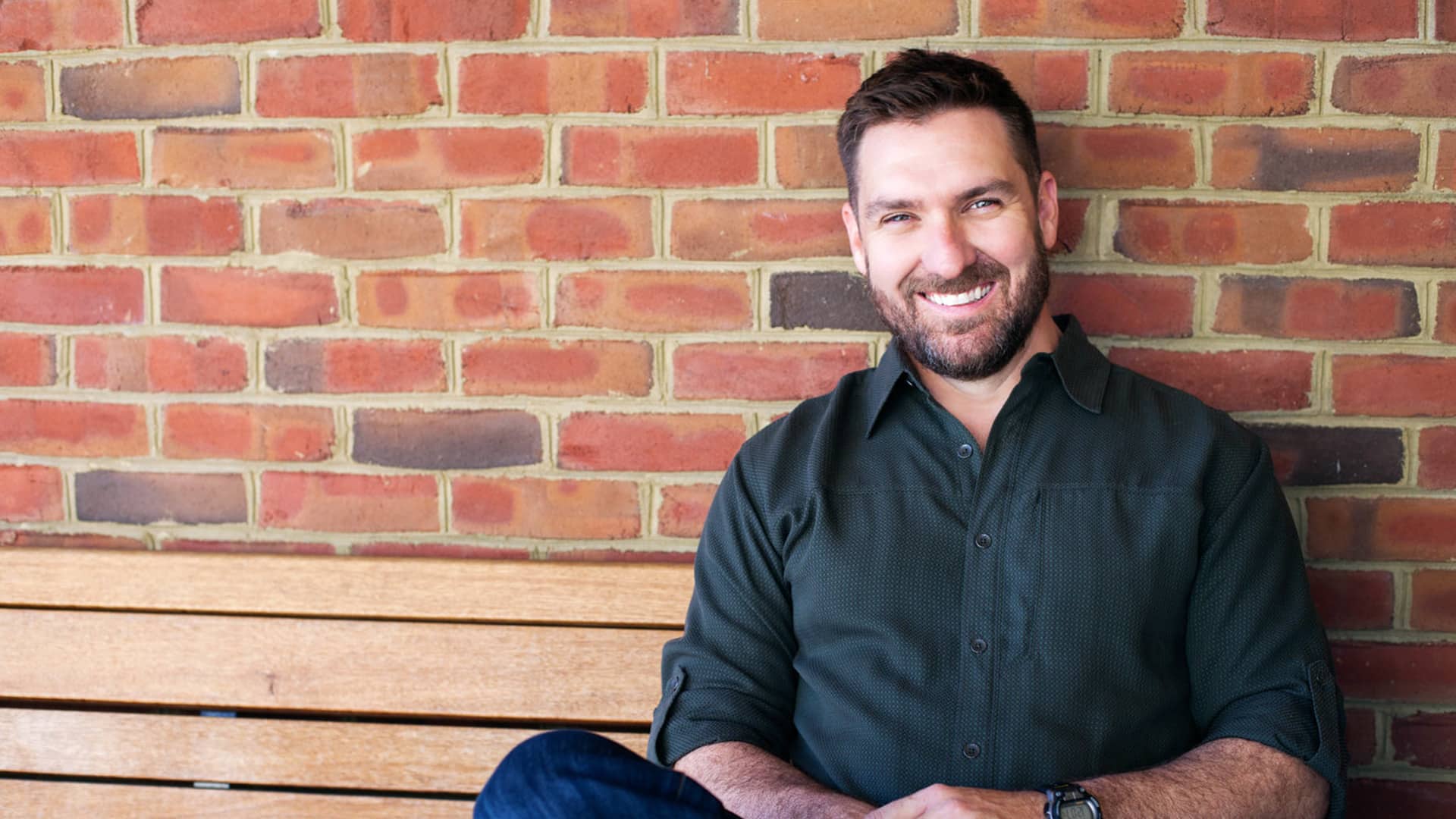
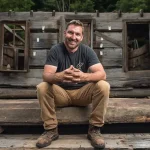
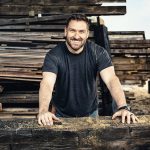
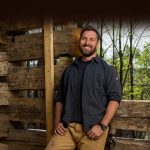
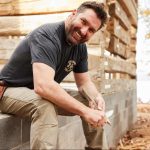
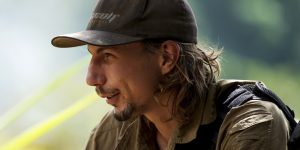




Leave a Comment